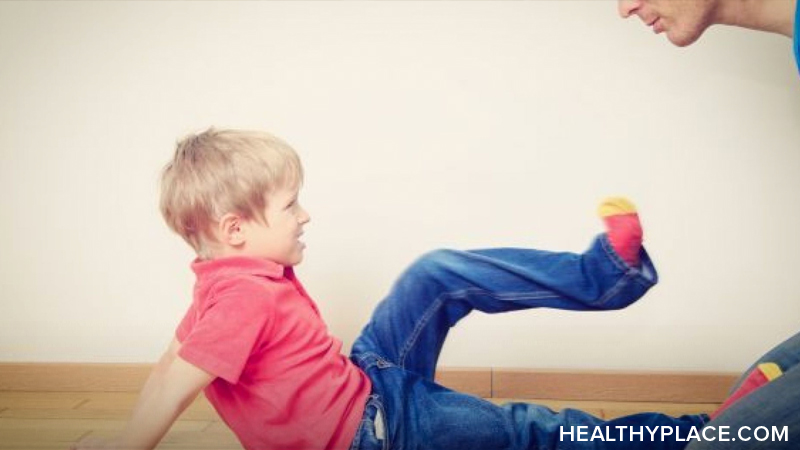Ways to Discipline Ungrateful, Spoiled Children

It can seem that there is no way to discipline ungrateful, spoiled children. Kids that act ungrateful or spoiled seem out of control and unteachable. Having a self-centered, demanding, unsatisfied child is exhausting and frustrating. There is hope. It’s possible to teach kids new attitudes and behaviors. Keep reading to learn how to discipline a spoiled, ungrateful child.
How to Discipline an Ungrateful, Spoiled Child: Know How They Got This Way
Spoiled kids believe that the world and everyone in it revolves around them. They feel that they have the right to have what they want when they want it, and the needs of others aren’t as important as their own. This sense of entitlement doesn’t develop overnight. It’s a process that happens over time and is born out of usually well-meaning parenting styles.
Use this checklist to see if any of these culprits underlying self-indulgent behavior fit your household:
- Giving your child too much, buying them things they want because you like to see them happy (plus you don’t want to make a scene at the store)
- Over-nurturing your child by protecting them from all things they find unpleasant—parents might do their child’s homework, allow them to skip doing anything they don’t like, prepare special meals, and more
- Providing too little structure, routines, limits, and expectations
- Giving in to kids without making them do things to earn their privileges
The purpose of knowing how spoiled children develop is not to assess blame; again, most parents who use the above practices are well-meaning. Identifying contributing factors allows you to begin eliminating them.
How to Discipline a Child Who Is Spoiled or Ungrateful
Disciplining your child when they are accustomed to having everything go their way requires patience and consistency. When you begin to discipline, your child will very likely act out more than they already do if they don’t get their way. That’s okay. It’s part of the discipline, or teaching, process. Your child has a lot to un-learn and re-learn.
Use these discipline strategies to help your kids change their behavior to a more effective approach to their life:
- Set simple and clear limits, rules, and consequences. Make sure your child knows what they are.
- Be consistent. Always follow through with your established consequences so your child learns that you’re serious.
- Encourage and reinforce their positive behavior; catch them behaving in a non-entitled way.
- Increase their awareness of their ungrateful behavior or words by gently pointing out what you observed. Kids need to learn what it means to act spoiled or ungrateful so they can replace negative behaviors with different ones.
- Avoid shaming or name-calling. Telling your child they’re a spoiled brat will only make them identify with the label and try to live up to what you think of them.
- Separate your child from their behavior. They are acting spoiled. They aren’t spoiled at their core.
Throughout the process, stay calm. Losing your temper is like having a tantrum and makes you seem spoiled to your child. Discipline is about helping your child learn better behavior, so model calm, rational conduct. When you’re calm, your child is much more likely to cooperate as you begin the next step in disciplining an ungrateful child.
To Discipline Ungrateful, Spoiled Children, Show Them New Behaviors
As you set and enforce limits and your child’s poor behavior begins to lessen, you can begin to replace spoiled behavior with something more desirable. This is done with both perspective and action.
Even more important than reducing what you don’t want is teaching grateful, unselfish behavior. Help them shift their perspective from what they think they deserve to what they can give or do for others.
Do things with your child that teach kindness and positive action. Together, help a housebound neighbor. Make a meal together for someone who could use some help. You and your child might volunteer your time and talents somewhere in your community. Also, talk about kindness with your child. Ask them about the kind things they do at school.
Fostering gratitude reverses ungrateful behavior and outlook. At dinner each night, have everyone share one thing they’re grateful for that day. Have a family gratitude “wall,” a marker board set up for family members to write about or draw things for which they’re grateful.
Teach empathy. Kids don’t instinctively know how their words and attitude affect others. Talk about how others might have felt in response to your child’s unkind words or selfish behavior. You can even use characters in TV shows or books as empathy-teaching tools.
While there are no quick fixes, there are ways to discipline ungrateful, spoiled children. Be calm, consistent, and view the process not as punishing away bad behavior but as teaching positive behavior that builds character.
APA Reference
Peterson, T.
(2022, January 11). Ways to Discipline Ungrateful, Spoiled Children, HealthyPlace. Retrieved
on 2026, March 4 from https://www.healthyplace.com/parenting/discipline/ways-to-discipline-ungrateful-spoiled-children



